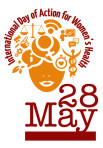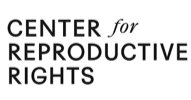Women’s Health Still Matters: Ensure availability and equitable access to essential SRH services in COVID-19 Response



Ensure availability and equitable access to essential SRH services in COVID-19 Response
We, as community and civil society organizations working on sexual and reproductive health and rights for all, strongly urge the Philippine government to ensure the availability and equitable access of essential sexual and reproductive health services during the COVID-19 pandemic.
We express our utmost concern and grief over the preventable death of Katherine Bulatao, 26 years old, who was unjustly refused emergency care by six hospitals. To avoid being infected with COVID-19, she decided to give birth at home with the help of a midwife. However due to complications, she needed to be referred to a hospital that could provide her life-saving care. The unjust refusals to provide the emergency treatment Katherine needed led to her death. Based on news reports, she was denied for reasons ranging from the lack of adequate medical capabilities in the hospital to the inability of Katherine to make a deposit or advance payment to the hospital. Katherine’s fundamental rights to life, health, equality and non-discrimination, and to be free from torture and ill-treatment, among others, have been blatantly violated. She was exposed to unnecessary physical and mental suffering due to denial of life-saving care that only a pregnant person needed and which eventually led to her death.Katherine’s avoidable death clearly reflects how the government’s response to the pandemic has overlooked the availability and accessibility of quality life-saving reproductive health services. While we recognize that our health system is overburdened with responding to the direct consequences of COVID-19, this does not justify the deprioritization of essential reproductive health services for those who are already in vulnerable situations. Katherine’s death highlights an urgent and time-sensitive need for better maternal and childbirth information and services in the context of the pandemic and the need for adequate supply of life-saving commodities for maternal health. It also underscores the need to address systemic weaknesses in our health care system which failed to enforce the government’s legal and policy guarantees on women’s right to reproductive health and the continuity of provision of essential health services including antenatal and post-partum care services and both basic and comprehensive emergency obstetric and newborn care, essential intrapartum and newborn care, and sexual and reproductive health services in general in the context of COVID-19.[1] Katherine’s death stresses the lack of adequate health facilities and service providers, and how for-profit healthcare neglects and denies women their right to life and health.
Before the pandemic, it was estimated that 2,400 women and girls die every year in the Philippines from preventable causes related to pregnancy and childbirth including postpartum hemorrhage, complications from unsafe abortion, hypertensive disorders and sepsis. There is a high probability that these preventable deaths would only increase with diminished health system resources, lack of immediate access to accurate reproductive health information and services, inadequate transportation facilities, and decreased or total loss of income and employment opportunities in a COVID-19 response that fails to take into account the specific needs of women’s reproductive health and rights.
As financial, technological, and human resources are diverted to directly respond to the COVID- 19 pandemic, particular threats to women from marginalized groups including those from lower socioeconomic status or those who already lack access to adequate health and social services are exacerbated. We call on the government to ensure the inclusion and prioritization of essential sexual and reproductive health information and services in its overall COVID-19 response and intervention to minimize the impact of the outbreak on the most vulnerable sectors of our society.
Clear mechanisms to ensure the availability, accessibility, acceptability and quality of reproductive health information and services must be put in place. In particular, we urge the government to:
- Comply with the Minimum Initial Service Package for Reproductive Health which should include obstetric, prenatal, and postnatal care; contraceptive information and services, including emergency contraception; and post abortion care and post-rape care; and services for gender-based violence survivors;
- Appropriate adequate funding for the continuation of essential reproductive health services to ensure that these services remain affordable for all particularly among socially disadvantaged groups;
- Ensure that reproductive health facilities are able to operate and continue provision of essential services;
- Widely disseminate up to date information on the continued availability of reproductive health services i.e. type of services available, and where to avail them, to ensure that women and girls are able to make informed decisions about their health and well-being;
- Ensure the supply of and access to essential and life-saving medicines as provided under the World Health Organization’s List of Essential Medicine;
- Guarantee access to quality, respectful maternal health care to ensure freedom from abuse, discrimination, coercion, or violence;
- Monitor provision and utilization of essential reproductive health services including documentation of cases of delays or outright denials on the provision of these services for improved accountability;
- Develop task-shifting and -sharing strategies to ensure the efficient use of health care providers currently available;
- Adopt alternative approaches on the provision of essential reproductive health information and services including the mental health aspect through the use of telehealth and virtual or electronic platforms for screening, consultations, and follow-up.
- Exert due diligence in addressing gender-based violence by employing all efforts to prevent, investigate and punish perpetrators’ violent acts.
We extend our deepest sympathies to Katherine’s bereaved family. We will continue to demand for justice and will honor her life by making our calls and feminist solidarity stronger for the recognition that women’s health is essential during this critical period and in the ‘new normal’.
SIGNED:
Women’s Global Network for Reproductive Rights
Center for Reproductive Rights
EngendeRights
Catholics for Reproductive Health
WomanHealth Philippines
Filipino Freethinkers
Philippine Safe Abortion Advocacy Network
SheDecides Philippines
Family Planning Organization of the Philippines
Kabataan San Sidlangan, Inc.
Amarela PH
Pambansang Koalisyon ng Kababaihan sa Kanayunan
Center for Women’s Resources
Oxfam Pilipinas
End Rape Culture PH
Reproductive Health and Gender Advocates’ Movement
University of the Philippines Center for Women’s and Gender Studies
Grrrl Gang Manila
Young Feminist Collective Young Pinay
Times Up Ateneo
Gantala Press, Inc.
Young Advocates for SRHR (YAS)
Hindy Weber
Ladylyn Lim/UP Politikons
Ershiel Murata Aklan/TWGYA
Ranier Naldoza
Reiner Lorenzo J. Tamayo
Arnel Rostom Deiparine/ Women’s Clinic Pilipinas
Lilian Salazar
Desiree Amor B. Jacinto
Isaiah Mikhail L. Felarca
Aurora Quilala
Aprilyn Obanel
Joanna Marie Caumeran/Grrrl Gang Manila
Christian Jemverick S. Manio/ Lunas Collective
Veniz Maja V. Guzman / LUNAS Collective
Fenella Sto. Domingo
Jill Banta
Elisha Peji/Lunas Collective
Danna Aduna/Time’s Up Ateneo, Lunas Collective, Young Feminists Collective
Renelyn Lastimosa
Krystal/Lunas Collective
Benedict Bernabe/The Red Whistle
Dana Praise C. Guerrero/Lunas Collective
Dawn Macahilo/ Lunas Collective
WeBleedRedPH
Members of the PCW National Gender and Development Resource Pool Batch 4:
– Commissioner Cristita C. Triunfante Philippine Commission on Women (PCW) representing Education and Academe
– Atty. Allen L. Espino
– Cecilia I. Fantastico
– Renifer R Francisco
– PCOL Susan Rabano Jalla (Retired)
– Jean Enriquez
– Maide O. Jader
– Rowena S. Navera
– Judie Rose Dimayuga
– Minda Cabilao Valencia
– Pros. Allen L. Montenegro-Gasulas
– Mel Reyes
– Melot Balisalisa Atillo
– Rosario Panganiban
– Presley V. De Vera
– Alvin Cloyd Dakis, MHSS, RN
For more information on this statement, you may contact:
Marevic Parcon
Executive Director, WGNRR 09289584709 marevic@wgnrr.org
Atty. Jihan Jacob
Center for Reproductive Rights 09177143788 JJacob@reprorights.org
[1] Department of Health, Department Circular No. 2020-0167, Continuous Provision of Essential Health Services during the COVID-19 Epidemic available at https://dmas.doh.gov.ph:8083/Rest/GetFile?id=652841. See also Republic Act 10354, Responsible Parenthood and Reproductive Health Act of 2012 (2012); Republic Act 9710, Magna Carta of Women, sec. 17 (2009); Republic Act 10932, Act Strengthening the Anti-Hospital Deposit Law (2017).
